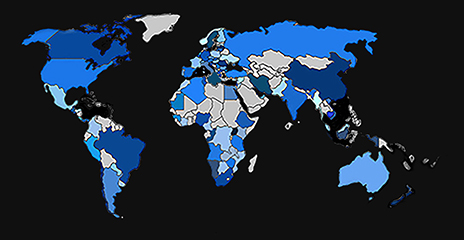
Congratulations. You've decided to buy a company. The only thing that stands between you and the purchase is lack of capital. Fortunately, many sources of capital exist that can help you accomplish an acquisition-some simple and straightforward, others more esoteric.
The Big 6
Wading through financing choices-let alone picking one-can be taxing. Here are the basics about six options you can discuss with an acquisition professional.
- Buyer's liquid cash. On the simple and straightforward side of the ledger sits your bank account. When considering the use of your cash, note how much risk you're willing to assume, because risk grows in proportion to cash expended. That said, why should you put up any money at all? Well, when approaching third parties for money, keep in mind that they want to share the risk-or, as it's sometimes known, they want the purchaser to have "skin in the game." Investors rightly believe that it's in everyone's interest for all investors to be somewhat "at risk."
- Buyer's company stock. If you're a publicly held company, or a privately held company with plans to go public soon, you may want to consider the use of your company's stock (either preferred or common). But keep in mind that the seller's motivation is usually in creating a "liquidity event." As a result, cash will be king, so using stock means the stock will be discounted against the cash price, increasing the number of shares you'll need to use and, ultimately, raising the purchase price.
- Acquisition target's assets. Interestingly, many potential acquirers look at the target's assets. Frequently, banks and other secured lenders make loans against such assets, including accounts receivable, inventory (raw material and finished goods only), furniture, fixtures, machinery, and equipment. The dollar amount banks will lend against these asset categories varies-usually starting at 80% to 85% of the most liquid assets (receivables less than 90 days old). Next come raw materials and finished goods. When banks or other lending institutions consider inventory, they normally will advance no more than 50% to 55% of value - and then only when the inventory in question is deemed liquid. Last, most banks will lend approximately 80% of "liquidation value" (the price a buyer would pay for an asset at auction) against the borrower's fixed assets.
- Cash flow loan. Some lenders will make a cash flow (also known as an over-advance) loan, when the borrower, target or the combined business's cash flow supports a loan of this type. Usually, these additional advances are made only on a short-term basis. And, if the transaction involves only privately held companies, it's typical for banks to secure personal guarantees from the borrowing entity's principal stockholders.
- Real estate. Another potential cash source is the company's real estate if you intend to acquire it along with the business. You can mortgage or refinance buildings and land if they're already subject to a mortgage or sell and lease them back.
- Mezzanine/subordinated lenders. These lenders comprise many private equity groups. The groups' risk level falls between banks and other secured lending institutions discussed previously, and pure equity investors. Mezzanine/subordinated lenders' compensation is between that of equity providers and secured debt holders.
Mezzanine lenders normally get a cumulative cash yield on their investment of 9% to 15% over the investment's life. In addition, they also get a "kicker" that typically appears in the form of warrants, which will increase these investors' yield to 18% to 25%. The number of offered warrants governs the expected yield on these nominally priced warrants.
Narrowing it down
There's no such thing as a free lunch or financing option. Every cash source costs money, usually in the form of interest owed to the lender. So, when considering whether to buy a business and how to pay for it, remember that part of the ongoing cost of operating the acquired company will be paying for other people's money you used to purchase it.
By Tim Bellon, CBI Owner and Managing Broker
VR Mergers & Acquisitions in N. Tampa, FL USA
VR is CBA's Alliance Partner in North America

